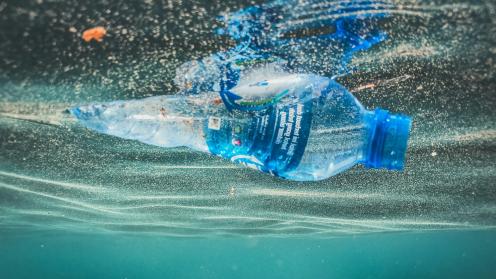Nothing about ending plastic pollution is simple. This seemed to be the theme of the day as delegates reconvened for the fourth session of the Intergovernmental Negotiating Committee (INC-4) to develop an international legally binding instrument (ILBI) on plastic pollution, including in the marine environment. Meeting in subgroups throughout the day, they debated what measures to take to address plastic pollution, and how to ensure those measures can be implemented.
Want to dig deeper into today's talks? Read the full Earth Negotiations Bulletin daily report.
Discussing the Revised Draft Text, as well as streamlined parts of it, they considered a number of important matters that could be included in the new treaty. Subgroups met throughout the day, addressing:
- Preliminary provisions, including the objective and scope;
- Financing;
- Fishing gear;
- Capacity building, technical assistance and technology transfer;
- Institutional arrangements and final provisions; and
- Technical issues, including on micro- and nanoplastics, trade in listed chemicals, polymers and products, and exemptions.
In their discussions on trade in listed chemicals, polymers and products, they debated on how to best implement global/harmonized rules prohibiting the export/import of chemicals, polymers, and microplastics controlled by the future instrument. Should these treaty provisions also apply to countries that do not eventually sign on to the treaty? To what extent?
On finance, delegates dealt with a provision calling for the imposition of a global plastic pollution fee targeting virgin plastic polluters, among others. Much as a fee may seem like a welcome and innovative addition to a treaty aiming to curb plastic pollution, it is not as simple as it sounds. A fee like this could raise the cost of producing important plastic products, which in turn would likely be passed down to the consumer, and the ripple effects could create further socio-economic inequality between those who can afford to buy the products and those who could not. “Nothing is straightforward,” said one delegate, roundly against any plastic pollution fee.
In the afternoon, two Subgroups engaged in verifying the streamlined texts prepared by their respective Co-Facilitators. Delegates raised questions on the streamlining methodology applied, and in some cases were unable to verify that the streamlined texts did in fact represent the discussions held by the Subgroups in previous sessions. After clarifying procedural issues that took a considerable amount of the allocated time, delegates made technical edits to the streamlined texts, providing suggestions into the evening.
With one day to go before Subgroup discussions are scheduled to end, many delegations are looking forward to a plenary, planned for Sunday, 28 April 2024, to get clarity on the way forward on the text.
To receive free coverage of global environmental events delivered to your inbox, subscribe to the ENB Update newsletter.
All ENB photos are free to use with attribution. For INC-4 please use: Photo by IISD/ENB - Kiara Worth




















































